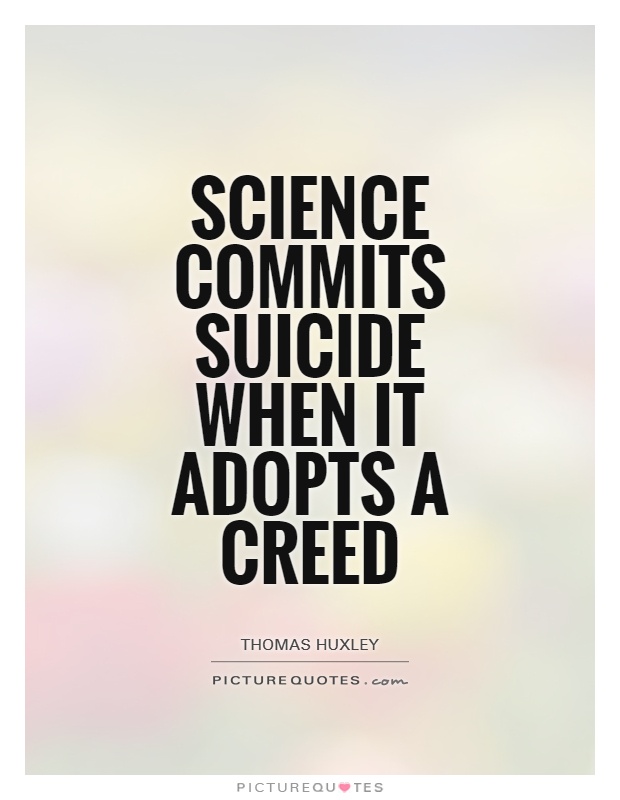Science commits suicide when it adopts a creed

Science commits suicide when it adopts a creed
Thomas Huxley, also known as "Darwin's Bulldog," was a prominent English biologist and advocate for Charles Darwin's theory of evolution. Huxley was a staunch supporter of scientific inquiry and the pursuit of knowledge through evidence-based research. He believed that science should be free from dogma and ideology, and that the adoption of a creed or belief system could hinder the progress of scientific discovery.Huxley famously stated, "Science commits suicide when it adopts a creed." This quote encapsulates his belief that science should be driven by curiosity, skepticism, and a commitment to seeking the truth through empirical evidence. By adopting a creed or belief system, scientists risk becoming closed-minded and unwilling to consider new ideas or evidence that may challenge their preconceived notions.
Huxley's views on the dangers of adopting a creed in science are particularly relevant in today's world, where scientific research is often politicized and influenced by ideological biases. When scientists adhere to a particular creed or belief system, they may be more likely to cherry-pick data that supports their preconceived ideas, ignore evidence that contradicts their beliefs, or dismiss alternative explanations that challenge their worldview.
Furthermore, the adoption of a creed in science can stifle innovation and creativity by limiting the scope of inquiry and discouraging researchers from exploring new avenues of research. Science thrives on curiosity, skepticism, and a willingness to question established beliefs and theories. When scientists become entrenched in a particular creed or ideology, they may be less likely to challenge the status quo or push the boundaries of knowledge.












 Friendship Quotes
Friendship Quotes Love Quotes
Love Quotes Life Quotes
Life Quotes Funny Quotes
Funny Quotes Motivational Quotes
Motivational Quotes Inspirational Quotes
Inspirational Quotes